John Pomfret Quotes & Sayings
27 most famous John Pomfret quotes and sayings (journalist). These are the first 10 quotes we have.
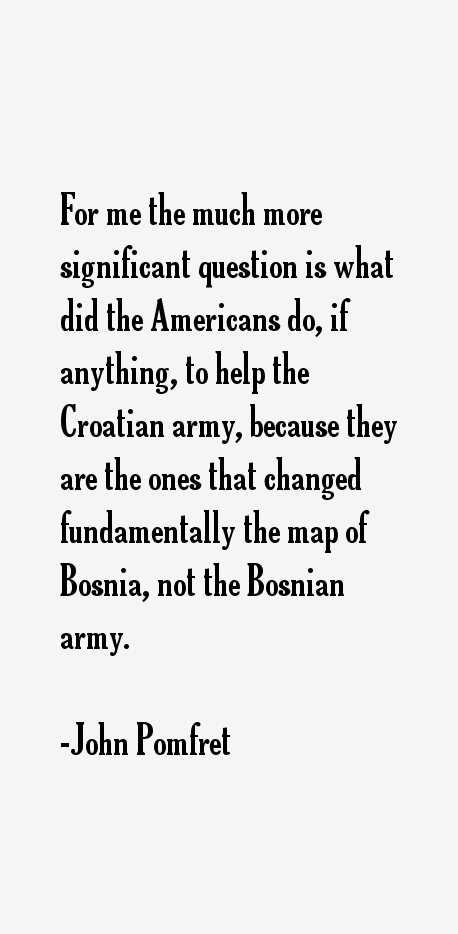
“For me the much more significant question is what did the Americans do, if anything, to help the Croatian army, because they are the ones that changed fundamentally the map of Bosnia, not the Bosnian army.”
“I think to a certain extent in Bosnia and among the Hutus in Rwanda and also among the Tutsis in Rwanda who then took revenge on the Hutus, there is a sense of being swept up and a sense that the society in which they live has gone mad.”
“When I see somebody being mistreated, my eyes tear up and I want to stop it. And I believe that the best thing I can do is to write about it, because if I insert myself into the equation it doesn't really do much good, but if I write about it I think it could do more good.”

“My main form of transportation at that time was a bicycle, because bicycles could move though the crowd.”
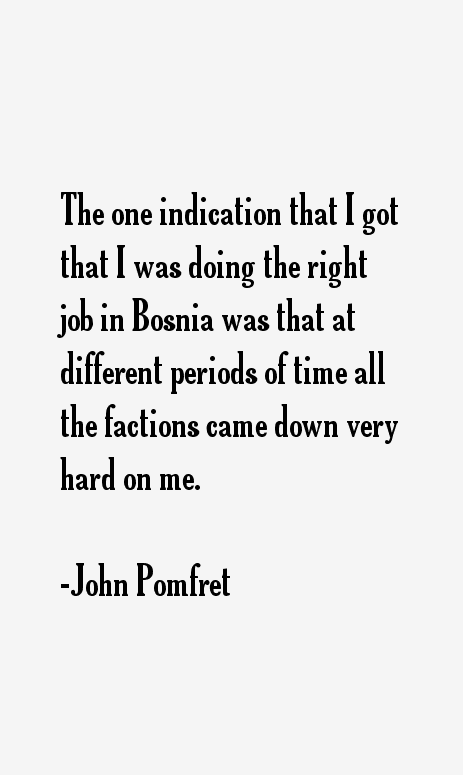
“The one indication that I got that I was doing the right job in Bosnia was that at different periods of time all the factions came down very hard on me.”
“But on the other hand, in the midst of the chaos, you find normal people. You find people who are willing to risk their lives to tell you what they saw, even though they have no dog in the fight.”
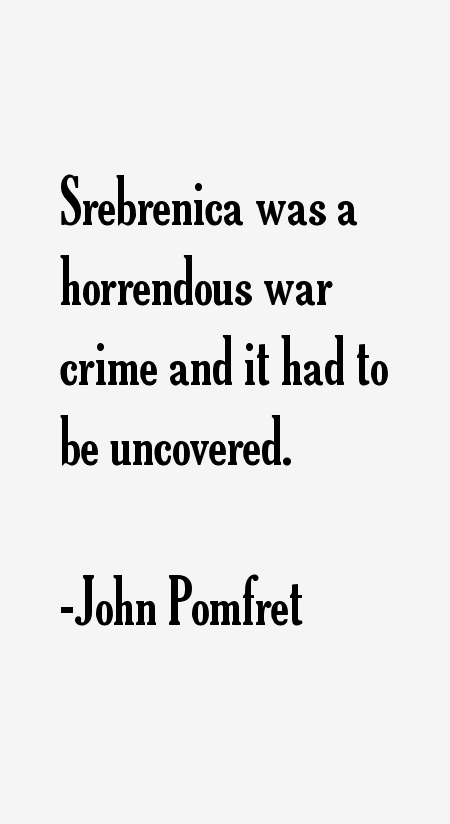
“Srebrenica was a horrendous war crime and it had to be uncovered.”
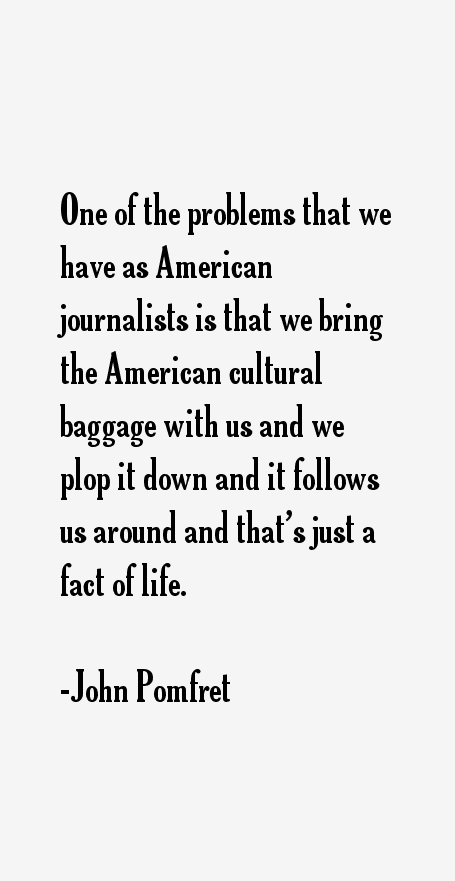
“One of the problems that we have as American journalists is that we bring the American cultural baggage with us and we plop it down and it follows us around and that's just a fact of life.”
“And when they do spin out of control there are important ramifications that affect America, not just its direct national interest but its broader interests as a nation which has thought of itself as a beacon to other nations, of freedom, liberty, democracy, whatever.”
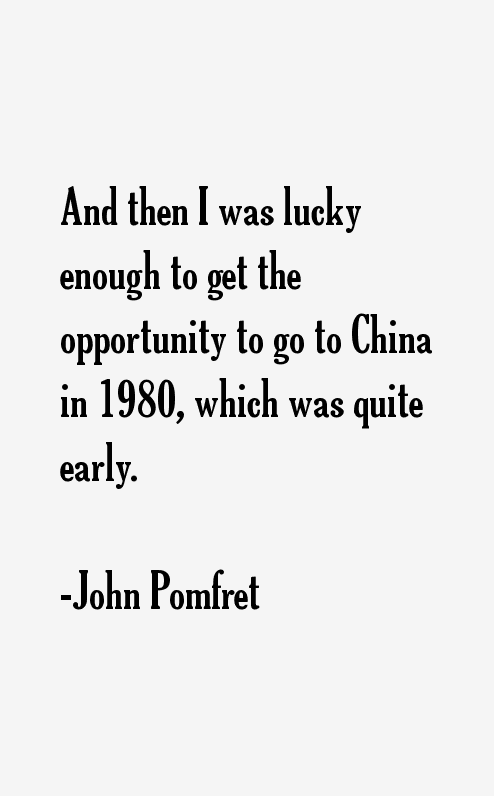
“And then I was lucky enough to get the opportunity to go to China in 1980, which was quite early.”
John Pomfret Quotes Rating
No Ratings Yet
Leave A Comment
























